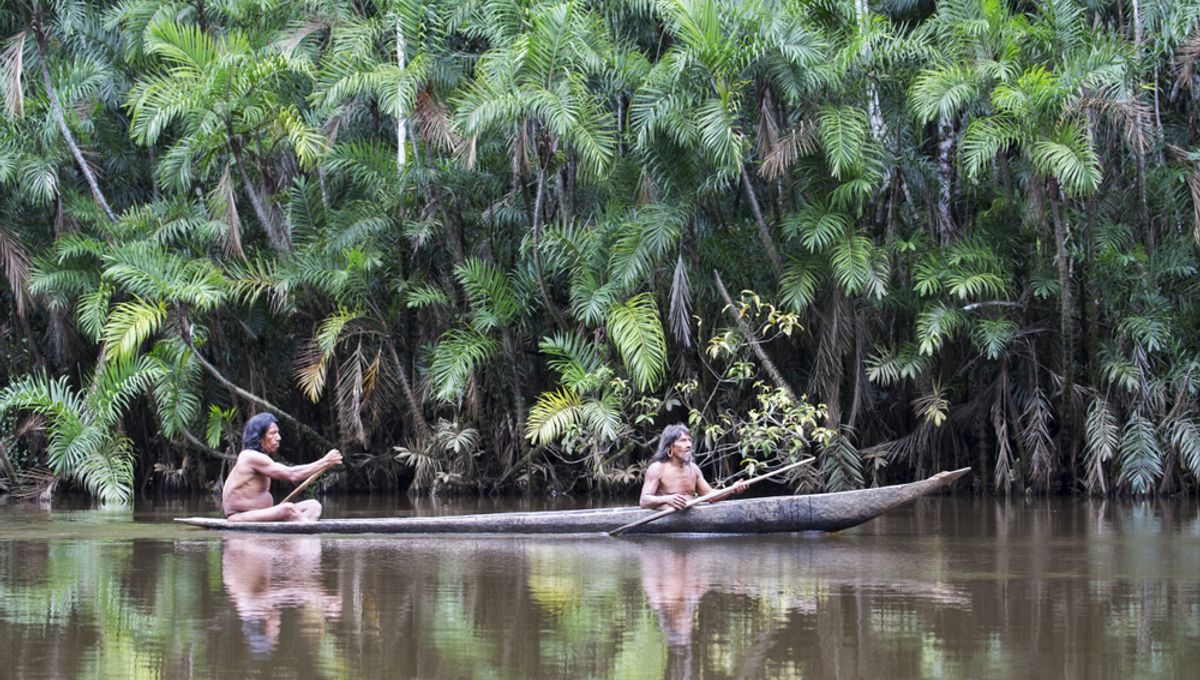
A historic referendum has seen the people of Ecuador vote in favor of halting new oil drilling projects in the Amazonian Yasuní national park, signaling a major victory for the uncontacted tribes who call this forest their home.
The vote took place on Sunday, August 20 in the first round of the country’s presidential elections. Just under 59 percent voted in favor of banning oil development in Yasuní National Park, while 41 percent voted in favor of continuing the exploitation of the area, according to Ecuador’s National Electoral Commission.
The Yasuní National Park is said to have one of the greatest densities of biodiversity of anywhere on the planet. Located in the Amazon region in Napo province of northern Ecuador, it was designated a UNESCO Biosphere Reserve in 1989.
It’s the natural habitat of at least 610 animal species, including a wealth of bats, other mammals, amphibians, reptiles, and birds. At least 33 of these animal species are vulnerable to extinction, not least because of the ongoing destruction of their natural habitat.
Given the well-known perils of fossil fuel extraction, the vote is being celebrated as a major victory for the environment and biodiversity.
“It is the first time that a country decides to defend life and leave oil underground,” YASunidos, an environmental group that backed the referendum, said in a social media post
“It is a historic victory for Ecuador and for the planet!”
The national park is rich in human culture too. Numerous Indigenous peoples live here, including the Huaorani, an ethnic group of a few thousand people who speak a language not known to be related to any other. It’s also home to a number of “uncontacted” tribes who remain in voluntary isolation, including the Taromenane, Tagaeri, and Dugakaeri.
In recent decades, these groups have come under increasing pressure from oil drillers, miners, and illegal loggers in the Yasuní National Park. One particular grim passage of this history occurred in 2008 when five people from the Taromenane and Tagaeri tribes were reportedly killed by loggers in the eastern Yasuní National Park.
It’s hoped this latest referendum vote will offer some protection to the Indigenous peoples of Yasuní and inspire other movements to secure the land rights of uncontracted tribes – some of the most vulnerable yet resilient people on the planet.
“This is a major victory for Ecuador’s Indigenous movement, and for the global campaign to recognize the rights of uncontacted tribes,” Sarah Shenker, head of Survival’s Uncontacted Tribes campaign, said in a statement.
“The uncontacted Tagaeri, Dugakaeri and Taromenane have for years seen their lands invaded, firstly by evangelical missionaries, then by oil companies. Now, at last, they have some hope of living in peace once more. We hope this prompts greater recognition that all uncontacted peoples must have their territories protected if they’re to survive, and thrive,” Shenker explained.
Leonidas Iza, President of Ecuador’s national Indigenous organization CONAIE, added: “Science has shown that the best protected territories in the fight against climate change are Indigenous territories. That’s why we invite the international community to lend a hand, in solidarity and sensitively, to protect the territories that balance the life of Mother Nature, which save species and also humanity.”
Source Link: Ecuador Votes To Block Amazon Oil Drilling In Victory For Uncontacted Tribes